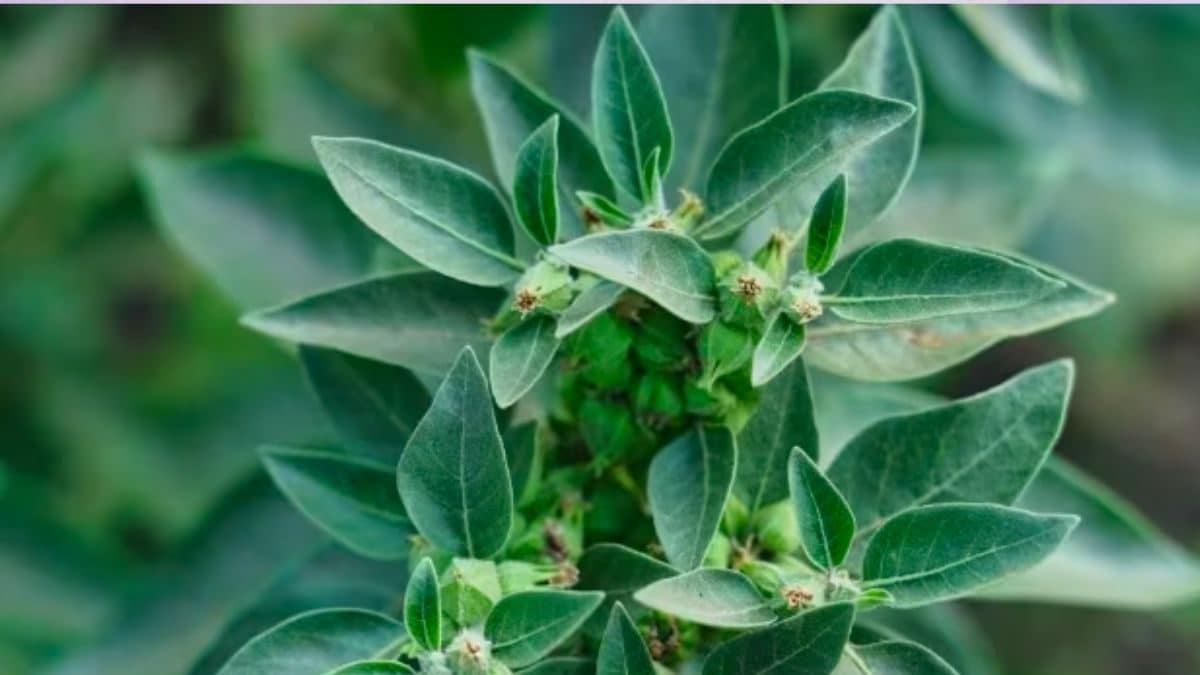[ad_1]
Indian Ayurveda offers a unique and time-tested approach to many of our health problems. Be it herbal oils, stress management, weight loss, or lifestyle and nutrition balance, Ayurveda provides answers to every impending problem. One such persistent issue is sleep deprivation, faced by almost 93 percent of Indians. But worry not, Ashwagandha, also known as Indian Ginseng, is the remedy to this problem.
Scientifically known as Withania somnifera, Ashwagandha got its name from its roots, which are said to smell like a wet horse. Ashwagandha comes from the term ‘ashwa’ meaning horse, and ‘gandha’ is for smell. This shrub is most commonly found in India, the Middle East, and parts of Africa and has various properties.
According to Dr. Upasana Vohra, an Ayurvedic doctor and anime creator, Ashwagandha reduces anxiety, enhances the activity of your immune system, reduces blood sugar levels, improves mental health due to its antipsychotic properties, increases the longevity of joints, and, of course, aids in sleeping, reported India Today.
Not just experts, a lot of health influencers are promoting it as an ‘Indian Ayurvedic answer’ to a lot of problems. This herb has also made its way into the tinsel town, and Bollywood celebs have time and again endorsed this shrub.
According to the media outlet, popular designer and actor Masabha Gupta spoke about Ashwagandha in the form of tea as a part of her morning routine in an interview in 2023. Moreover, during ‘Koffee with Karan’ in 2022, Varun Dhawan advised a caller to have Ashwagandha to improve his “sex life”.
Sleep Gummies vs Ashwagandha
When asked about consuming Ashwagandha instead of sleeping gummies and supplements, Dr. Vohra explained that gummies are similar to Ashwagandha. They both have common properties that improve the quality of sleep.
A nutritionist and wellness expert from Mumbai, Debjani Gupta also agreed and further says that Ashwagandha offers natural and holistic support for sleep by addressing stress and anxiety, while sleep gummies may contain additional ingredients, like chamomile extract, melatonin, and certain essential vitamins for sleep support.
The nutritionist also said that “results from a few clinical trials suggest that ashwagandha extracts may help with sleep.” Linking it to the latest study in 2023 centred in India, she informed that 150 healthy men and women aged 18 to 65 years with self-reported sleep problems took ashwagandha root and leaf extract.
The results showed that participants consuming ashwagandha extract showed improvements in sleep efficiency, total sleep time, sleep latency, and awakening after sleep. The study also revealed that benefits were also more prominent in persons with insomnia.
Moreover, the media outlet also quoted Dr. Kiran, MD, a celebrity skin aesthetic and wellness specialist from Delhi, saying that Ashwagandha extract exhibited a small but significant effect on overall sleep. She connected the hypothesis to a 2021 study that was done with 400 participants to prove this. She said, “The study showed the best results were seen in those with non-restorative sleep, which is 10 percent of the insomnia category, and a dose of 400 mg for about 6 weeks helped them,” added Dr. Kiran.
How do you consume the right amount of Ashwagandha?
Ashwagandha should be taken in different quantities for different purposes, as per experts. For example, Dr. Vohra recommends 5–10 g of Ashwagandha for infertility and 5–10 g for improving sleep quality. Later, the dose must be reduced to 3-5 gm per day.
However, it’s important to consult a healthcare professional to know the correct dosage before incorporating it into your routine, as Ashwagandha may assist with sleep, but it comes with its own set of risks.
According to Dr. Vohra, “In some people, Ashwagandha, if taken for a longer period, can cause upset stomach, diarrhoea, nausea, and irritation. In pregnant women, it increases the risk of miscarriage. In the case of kids, Ashwagandha has many physical and mental side effects. These include mood changes, depression, anger, nausea, and dizziness.”
Celebrity skin aesthetic and wellness specialist Dr. Kiran, on the other hand, says that the herb, in some cases, worsens acne, PCOS, and balding.
[ad_2]
Source link


